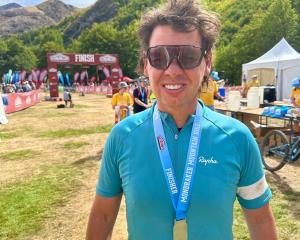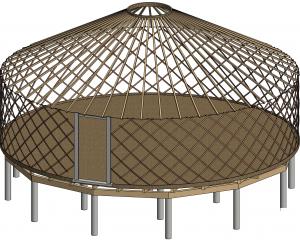A Queenstown developer says it is time for the Southern District Health Board to deliver on a promise it made more than three years ago and progress a CT scanner for Queenstown.
Remarkables Park developer Alastair Porter's comments followed coroner David Crerar's finding that United States tourist Corey Docherty, who died in Dunedin Hospital in February last year after suffering severe brain injuries when he fell from a Queenstown fire escape, might have been treated differently earlier, had he been scanned in Queenstown.
The DHB told Mr Crerar it was ‘‘impractical'' to fund and supply CT scanners to all its tertiary hospitals.
When contacted for comment, Mr Porter, who has plans to establish a joint ‘‘private-private'' hospital that might host a CT scanner at Remarkables Park, said the community was not asking the DHB to do that.
‘‘We're asking them to fund the scanner that they promised Queenstown [in 2012] ... there's no point in comparing Queenstown to all of their other tertiary hospitals.''
In June 2012 the DHB announced Dunstan Hospital, in Clyde, would get a scanner as soon as possible, serving Central Otago, including Queenstown, Alexandra, Clyde and Cromwell, and a public-private partnership would provide one for Queenstown.
Chief executive Carole Heatly said at the time the DHB had identified a private provider to work with on a diagnostic suite, including a CT scanner, for Queenstown as part of a public-private partnership.
Ms Heatley said the DHB would ‘‘work towards having a CT scanner in place there [in Queenstown] in two years' time''.
This week the Otago Daily Times asked the DHB what progress, if any, it had made in relation to that, if a private provider had been found, or if the board was still looking for one.
In response, Ms Heatly said the private provider had pulled out of the partnership.
The DHB had been ‘‘in discussions'' about developing an elective surgical centre in the resort, which would have required a diagnostic facility to support it.
‘‘The private provider, after extensive analysis of patient numbers and flows, decided the volumes weren't sufficient at that time for a surgical facility.''
Ms Heatley did not respond to further questions asking her to clarify what progress had been made on getting a CT scanner based in Queenstown since then.
The DHB's submission to Mr Crerar said the cost of a scanner was about $2million and annual operating costs were about $800,000.
At present, Dunstan's scanner was used about two and a-half days a week, the coroner said.
Former Wakatipu Health Trust chairwoman Maria Cole said the Queenstown community appeared to be ‘‘out of sight, out of mind'' for the DHB.
‘‘We've been let down again.
‘‘There is no vision [and] the troops are getting angry and anxious''.
Mrs Cole reiterated her belief the resort's hospital should move to community governance.
While that was not without its challenges the only way to resolve the issues was for the community to take control.
‘‘The only way, we believe, [to solve the problem] is for Queenstown to be master of its own destiny and that's really where self-governance comes into play.''
Queenstown Lakes mayor Vanessa van Uden could not be reached for comment.











